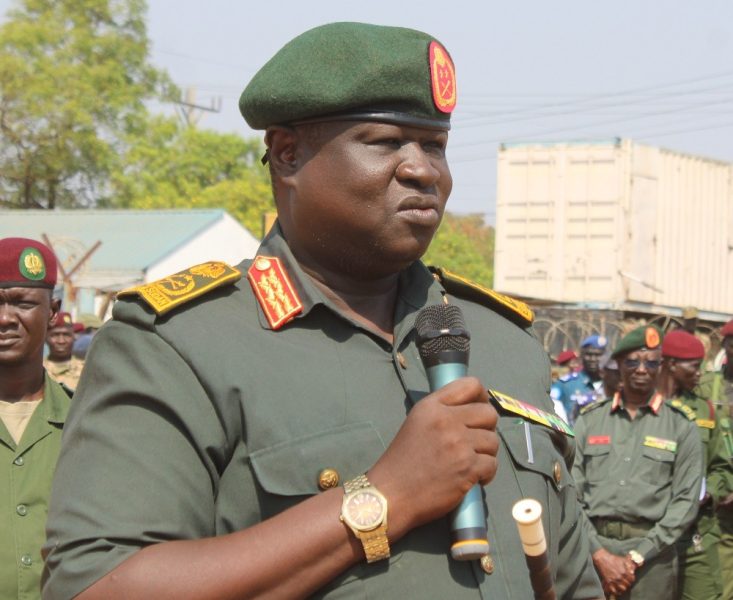
The South Sudan People’s Defense Forces (SSPDF) has accused the Sudan People’s Liberation Army-In Opposition (SPLA-IO), along with elements of the White Army, of hijacking United Nations barges and boats belonging to Sudanese businessmen, ordering their immediate and unconditional release.
According to a statement issued by SSPDF spokesperson Gen. Lul Ruai Koang, the hijackings occurred in Fangak, Leer, Jonglei, and Unity states.
Among the most serious incidents was a mass seizure at Adok Baar Port, where eight boats carrying passengers and assorted commercial goods were commandeered.
“In a blatant violation of the rights of passengers and business owners, those on board the hijacked boats were forced to disembark and told to seek alternative means of reaching their destinations,” Gen. Koang stated.
He added that the hijackers offloaded cargo from the vessels and held passengers and crew members hostage, demanding ransoms ranging from SSP 10 million to USD 50,000, depending on various factors.
“These unlawful acts have severely disrupted river transport, which is a vital lifeline for communities in remote parts of the country,” he emphasized.
In response, SSPDF Chief of Defense Forces, Gen. Dr. Paul Majok Nang, has ordered the immediate and unconditional release of all seized vessel, warning that non-compliance would result in targeted military actions, including aerial and riverine operations
“In light of the inconvenience and suffering caused, Gen. Dr. Paul Majok Nang orders the immediate and unconditional release of all barges and boats. Non-compliance will lead to military action,” the statement concluded.
Efforts to reach SPLA-IO for comment were unsuccessful by the time of publication.
Responding to the growing insecurity along South Sudan’s river corridors, Vice President and Chair of the Infrastructure Cluster, Taban Deng Gai, condemned the hijackings and called for accountability.
“Water transport must remain secure and accessible to all. These acts of piracy are not only criminal but also undermine national unity and development. We call on all parties to respect the peace agreement and safeguard essential infrastructure,” Taban said on Monday during the closing of a trade forum in Juba.
River transport remains a major mode of access to the Greater Upper Nile region. However, since the outbreak of conflict in 2013, using the river has become increasingly dangerous, and the current political instability continues to worsen the situation.

